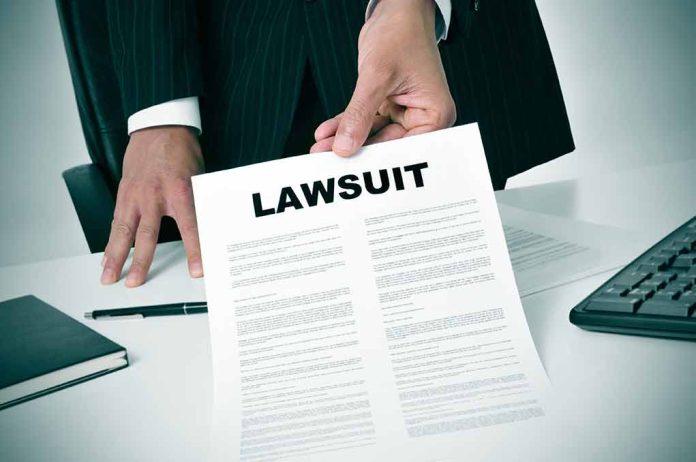
President Trump scores a major legal victory as his defamation lawsuit against the Pulitzer Prize Board advances, challenging the legitimacy of journalism awards given for what he maintains was the thoroughly debunked Russia collusion narrative.
Key Takeaways
- President Trump’s defamation lawsuit against the Pulitzer Prize Board will move forward after the court denied two motions to dismiss or postpone the case.
- The lawsuit challenges the 2018 Pulitzer Prizes awarded to the New York Times and Washington Post for their Russia collusion coverage.
- The Pulitzer Board refused Trump’s request to rescind the awards, claiming an independent review found no discrediting facts against the awarded submissions.
- The court rejected the Pulitzer Board’s argument that the lawsuit should be postponed until Trump leaves office in 2028.
- The case now enters the discovery phase, which may reveal internal communications about the award process.
Court Rejects Pulitzer Board’s Attempts to Dismiss Trump’s Lawsuit
In a significant legal development, President Trump has secured a decisive victory in his ongoing defamation lawsuit against the Pulitzer Prize Board,” according to The lawsuit, filed in December 2022, challenges the prestigious journalism awards given to the New York Times and Washington Post for their 2016-2017 coverage of alleged Russian collusion with the Trump campaign. The court has now twice ruled in Trump’s favor, first denying the Board’s motion to dismiss the case in July 2024, and more recently rejecting their attempt to postpone the proceedings until after Trump leaves office in 2028.
The lawsuit stems from the Pulitzer Board’s decision to award the 2018 prizes for national reporting to these mainstream media outlets for coverage that Trump has consistently maintained was based on false information. After the Mueller investigation and subsequent revelations failed to substantiate many of the original allegations, Trump formally requested that the Pulitzer Board rescind the awards. When the Board not only refused but issued a public statement defending their decision, Trump filed the defamation suit, arguing that by standing by demonstrably false reporting, the Board was perpetuating damage to his reputation.
Pulitzer Board’s “Independent Review” Under Scrutiny
Central to the legal dispute is the Pulitzer Board’s claim that they conducted an “independent review” of the awarded submissions after Trump’s complaints and found no reason to rescind the prizes. In their public statement, the Board asserted that no discrediting facts had emerged that would undermine the reporting. However, this position now appears increasingly vulnerable as the lawsuit proceeds into the discovery phase, where internal communications and the details of this purported review will likely face judicial examination. Trump’s legal team has maintained that the Board’s refusal to acknowledge the significant corrections, retractions, and contradictory evidence that emerged after the initial reporting constitutes deliberate defamation.
The court opinion specifically addressed the Pulitzer Board’s argument that the lawsuit would interfere with Trump’s presidential duties, noting that as “a willing participant in this litigation,” Trump is fully equipped to manage his time and responsibilities. This ruling effectively dismantles one of the Board’s primary arguments for delaying the proceedings and signals the court’s view that the case has sufficient merit to proceed despite Trump’s presidential obligations. With discovery now set to move forward, documents and testimony may soon reveal the deliberative process behind both the original awards and the subsequent refusal to rescind them.
Broader Implications for Media Accountability
President Trump celebrated the legal victory on his Truth Social platform, emphasizing that the Russia collusion narrative was “a complete & total SCAM” and criticizing the Pulitzer Board for awarding what he describes as “FAKE NEWS.” The advancement of this case represents more than just a personal victory for Trump; it potentially establishes a significant precedent for holding journalism award institutions accountable for endorsing reporting that subsequently proves problematic. If Trump prevails, it could fundamentally alter how prestigious bodies like the Pulitzer Prize Board evaluate and stand by their decisions in the face of contradictory evidence.
The lawsuit coincides with a broader national conversation about media credibility and the consequences of reporting that proves inaccurate or misleading. Many conservative commentators have pointed to the Russia collusion coverage as a prime example of what they view as systemic media bias against Trump and his administration. By pursuing this case, Trump is challenging not just the specific awards but also the institutional structures that validate and celebrate certain narratives within American journalism. As the case proceeds through the legal system, it will likely reignite debates about journalistic standards, accountability, and the responsibilities of organizations that bestow prestige upon particular reporting.



